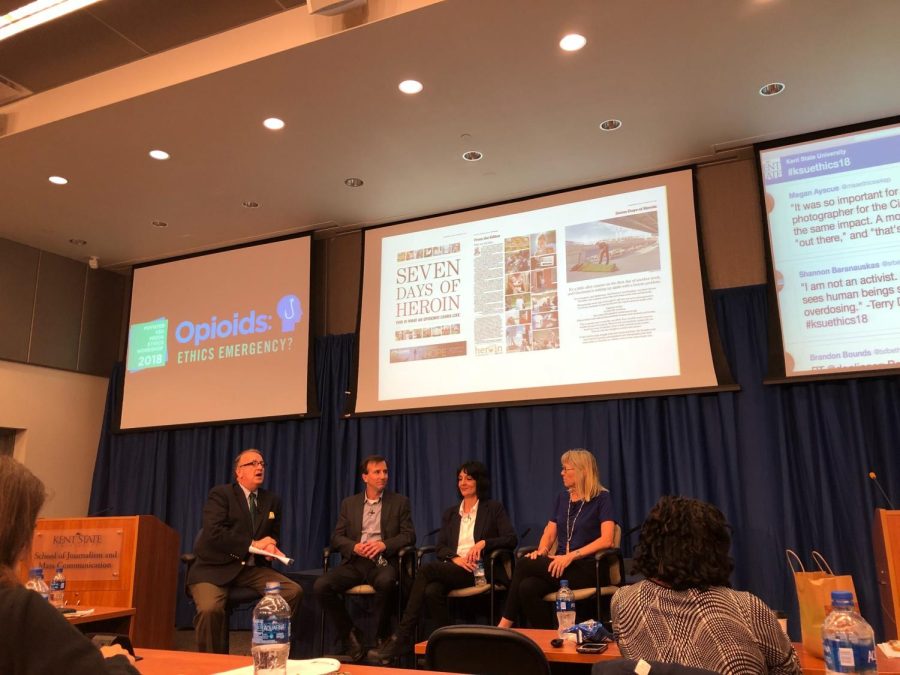Pulitzer Prize winners highlight 14th annual ethics workshop
Pulitzer Prize-winning journalists from the Cincinnati Enquirer participate in a panel discussion at the 2018 Poynter KSU Media Ethics Workshop.
September 21, 2018
“We did this story as a duty to our community,” said Terry DeMio, one of the three Pulitzer Prize winning journalists from the Cincinnati Enquirer who were the keynote speakers for the 14th annual Poynter KSU Media Ethics Workshop on Thursday.
The keynote featured DeMio, Dan Horn, and Liz Dufour. The three journalists won their Pulitzer for their project “Seven Days of Heroin,” an in-depth running diary of the everyday lives of heroin users and their loved ones.
The story was difficult for the journalists and they faced many ethical issues when deciding exactly how to cover the sensitive topic, but Dufour believed that the work was too important not to share with the community.
“(This work) is so important to show that these are real people, they could be you or I, we have to show their faces,” Dufour said.
“Six years ago, if I was looking for someone with addiction, I might not be able to find someone who would share their name,” DeMio said when asked about the privacy of the people they were covering. “I felt I could not write their stories without showing their faces.”
The discussion carried on for over an hour in FirstEnergy Auditorium at Franklin Hall, but the topic continued to address the human element of covering a story that hits so close to home for the subjects in the story and the community it’s involved in.
“The goal was to go to where these people are and show them in these moments where they’re experiencing this,” Horn said. “People had become desensitized to the issue … we just had to open people’s eyes.”
But that didn’t make it easier for the journalists. Even once the work was all finished, they found themselves trying to support the subjects they had grown to know over the week they worked on the project.
Dufour eventually found herself offering support to one of the stories’ subjects after the fact. She felt that there were no ethical dilemmas with this because she truly believed it was the right thing to do.
“Helping her was more important than doing another story on her,” Dufour said.
Once the story was finally published, the panel said they didn’t know what reaction to expect from the community, but overall it was a positive one.
“We had readers say they never realized this was outside their front door and thanked us for it,” DeMio said.
The entire conference featured multiple panels throughout the day that addressed different factors into the opioid epidemic. The morning panels featured discussions centered around addiction and how to treat it, while the afternoon sessions focused on best practices in covering these types of stories. But the sentiment was made clear during the keynote by DuFour.
“Their story is not their addiction,” Dufour said.
Jake Majka is the CCI reporter. Contact him at [email protected].












